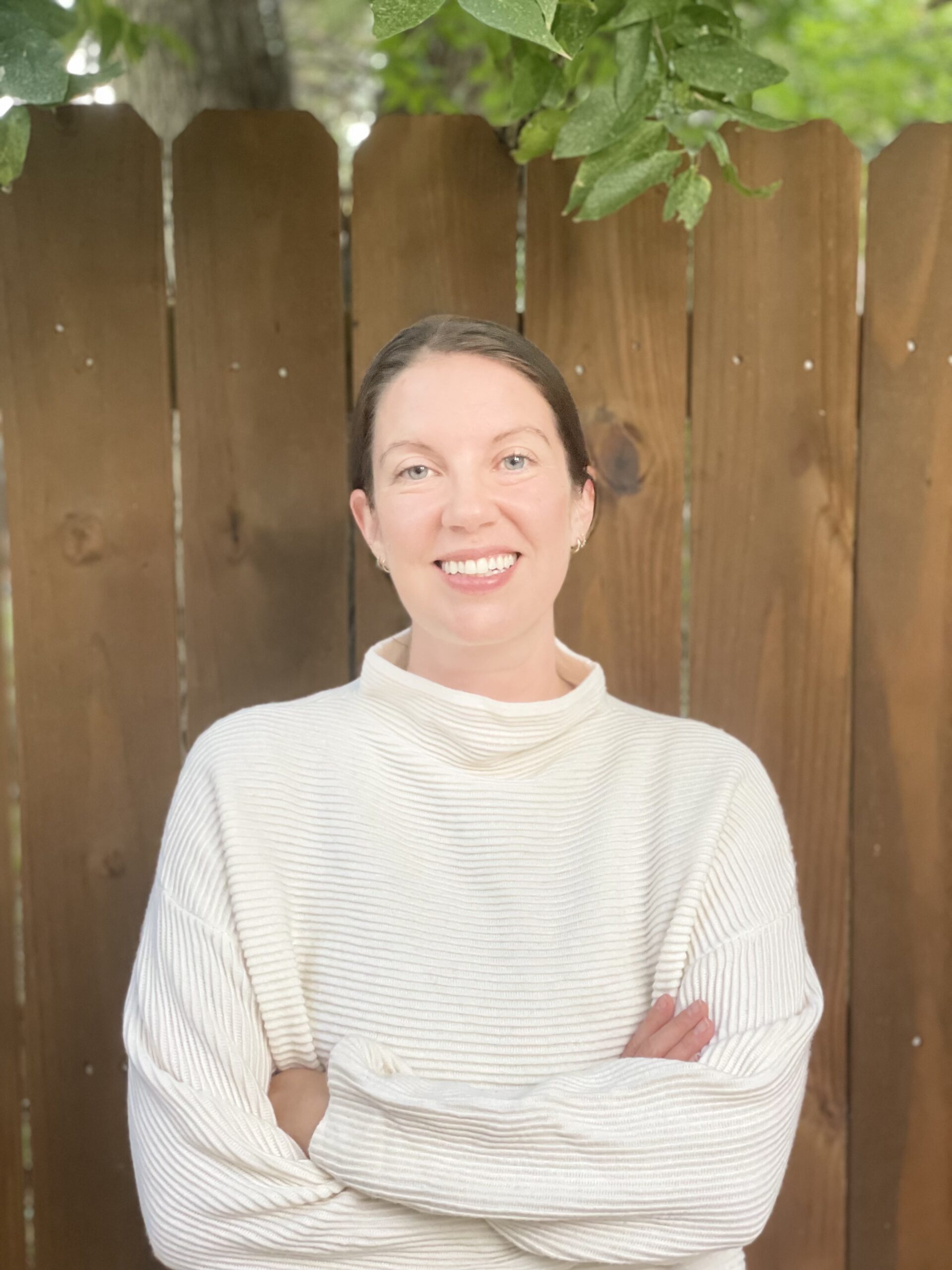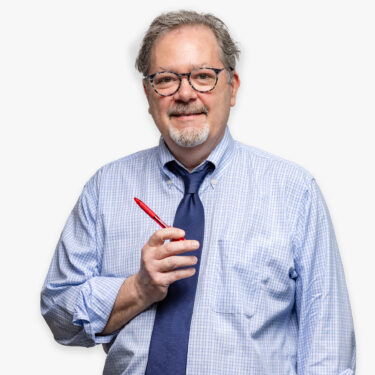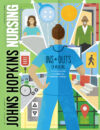Gurtler Scholar’s awakening with Peace Corps in former Soviet republic led to nursing and JHSON.
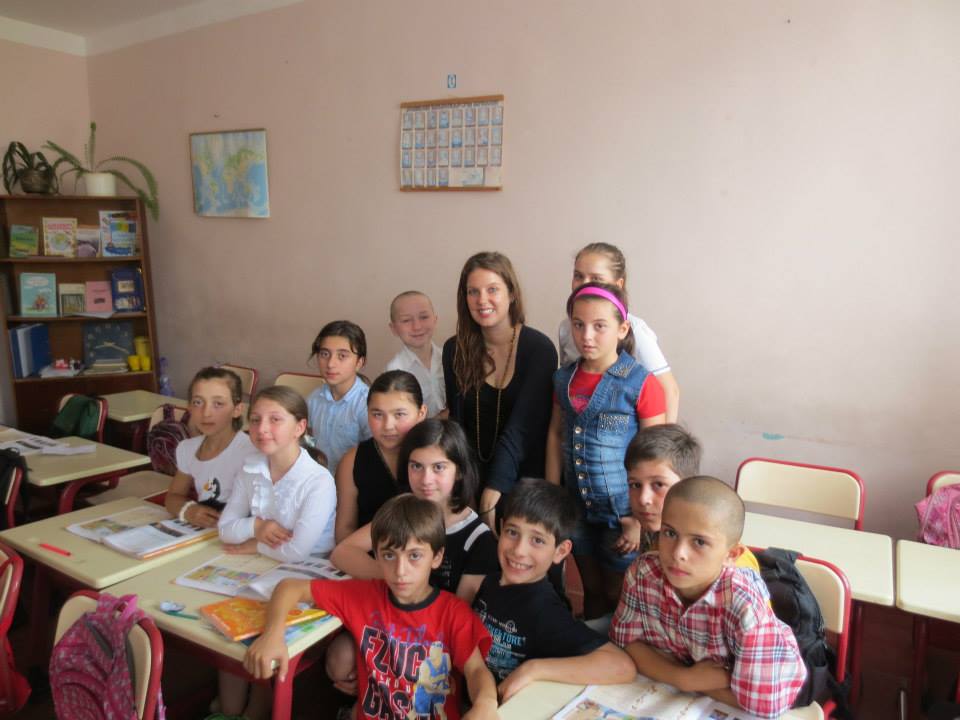
Merissa Daugherty, the 2024 Gurtler Scholar, was in Tskaltubo from 2012 to 2014 to teach young Georgians English and about various cultures and holidays.
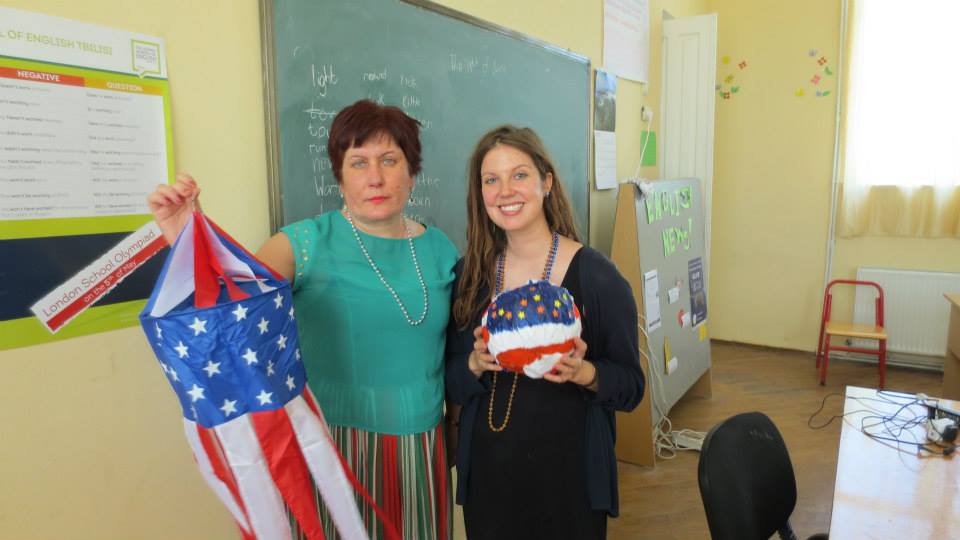
While with the Peace Corps in Georgia, Daugherty was struck by the landscape, the people, and the history.
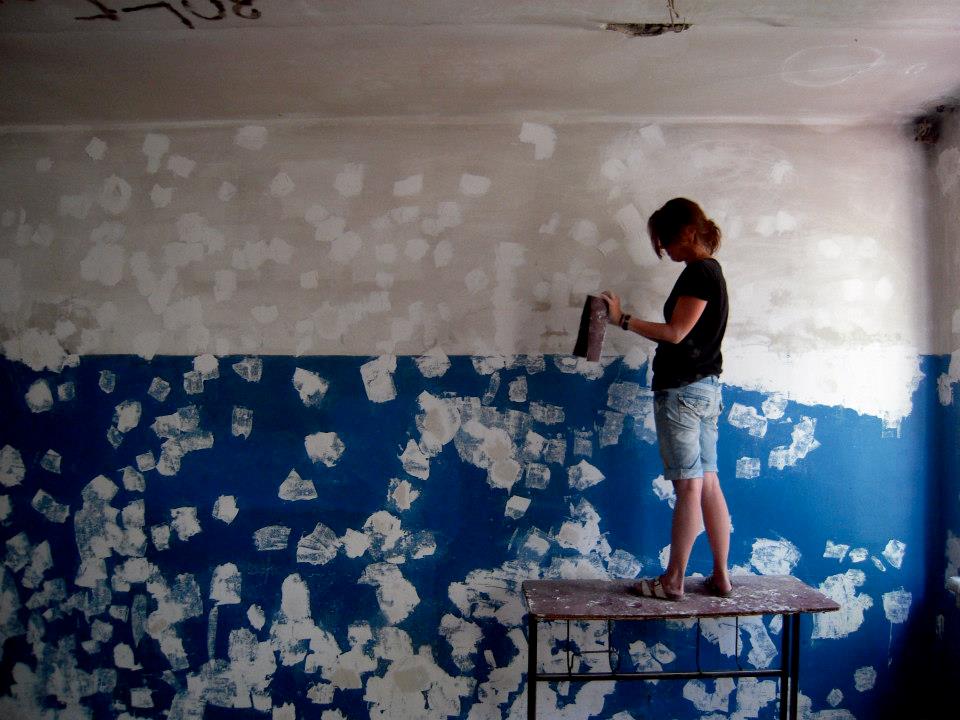
After the “good old days” as a relatively privileged communist state, Georgia was showing a few blemishes during Merissa Daugherty’s Peace Corps stay.
Halfway across the globe from where she expected to end up, Merissa Daugherty found exactly where she needed to be.
Georgia, as in “the former Soviet republic of,” welcomed the Peace Corps in 2001. Its independence from the old Union of Soviet Socialist Republics (USSR), declared in 1991, had come at a cost, leaving many wistful about the “good old days” as one of the more relatively privileged communist states.
“I’ve gained an understanding that although we are all different and unique—different cultures, different perspectives—there is so much more that unites us.”
“The older generation, they all would say, ‘Under the USSR, we had water all the time and electricity all the time.’ The younger generation was very Western-looking and wanted to leave that Soviet history behind them.” Daugherty, the 2024 Gurtler Scholar, was there from 2012 to 2014 to teach the young Georgians English and about various cultures and holidays. (Religion wasn’t exactly illegal, but the Soviets made anything but strict atheism an uncomfortable or even dangerous choice.) Basically, she was working to undo decades of indoctrination. “It was so closely interwoven into the culture, in the buildings, even in schools [students in her village, Tskaltubo, learned Russian in addition to Georgian].”
Daugherty, who speaks Spanish, had expected that the Peace Corps would post her in Latin America, but unrest across that region scuttled any such notions. She could wait a year and try again, or she could take Georgia. If you consult your world map, as she did, the nation sits beneath Russia and above Turkey, Armenia, and Azerbaijan on the Black Sea. Where to help was clearly less important to Daugherty than how and when (right now). Off she went.
“It was definitely interesting being in that part of the world,” she explains, “because my undergraduate degree was in history and political science. I was really learning so much about that area, and it is so rich in history.”
She was also struck by the beauty: In the land, in the people (the cacophonous symphony of folks making their points loudly and emphatically), in the unmistakable scent of baking bread. Cows roamed the streets. And there among the adolescent and pre-adolescent girls, Daugherty found her calling. “The SELF camp is actually the reason that I’m a nurse. I had never even considered nursing, never thought about it,” she explains of a program that promoted Self-Esteem through Leadership and Fitness (SELF). Topics would include menstruation, something not taught in schools, and other “things that I totally took for granted” as a child from a rural part of northeastern Pennsylvania. “And you could tell that it literally changed these girls’ lives learning that information. It was such an eye-opening experience.”
The takeaways from Georgia echo in a career path that has led Daugherty to the Doctor of Nursing Practice (Family Nurse Practitioner) program at the Johns Hopkins School of Nursing. “Working with youth or working with women, in a public health way … I could leverage that so much by having the background of medicine and health care. Looking into the different ways I could do that, and reaching out to some family friends who were nurses, that’s why I’m here.”
“I feel very driven to the service of my community.”
After a stint as an East Coast field team leader with AmeriCorps, Daugherty officially jumped into nursing. And it turns out that the world in need of saving might be just down the street. A registered nurse for six years now, her most recent postings have been as a certified sexual assault nurse examiner with the SAFE Alliance and (currently) with Texas Health Action, a free sexual health, HIV-prevention clinic. “We have a lot of patients who are unhoused, low-income, don’t have health insurance.” Both organizations are in Austin. “I feel very driven to the service of my community.”
The Gurtler Award will help there. “This scholarship was not something that I was aware of. I knew
Johns Hopkins has a very rich history of working with the Peace Corps and supporting returned
Peace Corps volunteers. So that is one of the reasons that it has always been on my radar. … I’m just incredibly grateful.”
Just finishing her first semester, Daugherty has not settled on a DNP project. But it isn’t difficult to guess how she’s leaning.
“I’m really interested in working with at-risk populations,” Daugherty says, adding that the first lesson is to listen. “I’ve gained an understanding that although we are all different and unique—different cultures, different perspectives—there is so much more that unites us. Understanding people’s environment, what they have or don’t have, and how that affects their overall health is way more important than me writing them a prescription.” ◼
Learn more about the Gurtler Scholarship, plus other annual scholarships awarded to Returned Peace Corps Volunteers each year by the Johns Hopkins School of Nursing. Visit nursing.jhu.edu/gurtler.
